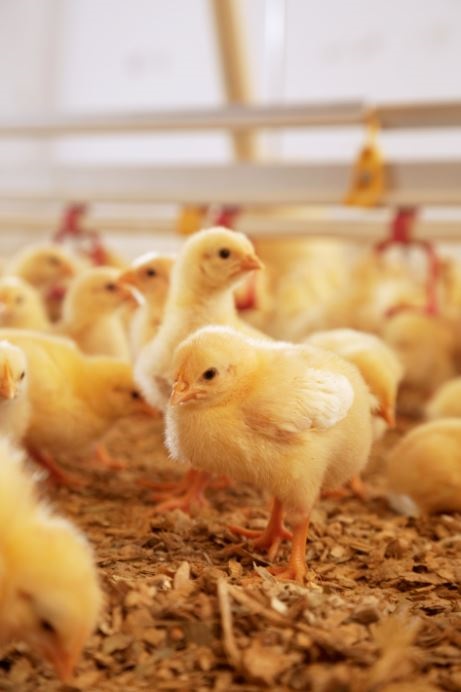Reinforcing broiler gut health can help to maximise feed efficiency and reduce the risk of a disease outbreak, such as Salmonella. Hannah Elliott, monogastric sales and technical support at Lallemand Animal Nutrition, explains how.

Salmonella control in poultry production is a complex issue, which has led the industry to develop prevention programmes from the feed mill to the farm building. A balanced healthy gut microflora reduces digestive Salmonella colonisation, notably in the caecum where the Salmonella level is a risk for carcase contamination during evisceration.
A healthy gut also contributes to a more robust immune system, meaning natural defences are much more able to deal with an infection. This means that when placed in a high disease pressure situation, the immune system will be better able to combat the disease. When it comes to reducing the risk of a Salmonella outbreak, biosecurity plays a huge role in keeping disease risks low.
This includes the cleaning and disinfection of farm buildings and equipment and feed bins, as well as strict control of potential disease carriers entering the farm, especially vermin and insects. In addition to the practical on-farm measures used to keep Salmonella outbreaks low, producers can see benefits from adding a specific probiotic yeast to the diet, S. c. boulardii CNCM I-1079 (Levucell SB, Lallemand Animal Nutrition).
As the first and only feed additive authorised by the EU with a food safety claim, trials have demonstrated its ability to reduce Salmonella contamination on carcases. Results from these trials have shown that following a Salmonella challenge, carcase contamination from birds that received Levucell SB was reduced by 50% compared to the control group, which received no diet supplementation.
GUT HEALTH AND FEED EFFICIENCY
Poultry producers are aware that the benefits of maintaining good gut health can lead to improved performance and increased feed efficiency. By fostering good gut health, you’re supporting and promoting beneficial species of bacteria which help to break down energy in the diet. You are also able to support gut integrity, meaning your birds are more able to absorb these nutrients. In combination, you get a far better utilisation of what you’re feeding the birds and are able to improve production and feed efficiency.
However, if the gut is compromised by either damage or a disease incidence the bird may not be able to absorb nutrients correctly. The disease pathogens will also be consuming the nutrients and energy that you want the gut to be absorbing, meaning that the bird will be receiving a reduced amount of nutrients, which will reduce growth.
As well as consuming nutrients, some pathogens can initiate an immune response, which, again, requires energy to sustain. Ensuring good gut health helps to reduce a bird’s overall susceptibility to the effects of pathogens, which will help to prevent these excessive immune responses from occurring.
WHAT CAN PRODUCERS DO TO ENSURE GOOD GUT HEALTH?
Good biosecurity must always be at the forefront of everyone’s mind. This will help to protect day-old chicks at placement from being faced with disease risk as soon as they enter the shed and will help reduce the ongoing risk throughout the crop. When it comes to supporting gut health, the addition of a specific probiotic yeast to the diet can generate huge benefits. In addition to reducing Salmonella carriage, Levucell SB has been shown to improve broiler weights and feed conversion.
One of the unique features of this specific probiotic live yeast is its patented coating technology, ‘TITAN’, which means it can survive the feed manufacturing process and reach the bird’s gut alive. This probiotic helps to strengthen the birds’ natural defence mechanisms through a reduction of pro-inflammatory cytokines and stimulation of antibody production, while supporting the growth of beneficial bacteria and inhibiting some specific microbial toxin activity. It also increases nutrient absorption through better gut maturity and integrity. In a multi-analysis of broiler production trials, under normal conditions when a disease risk isn’t present, the probiotic reduced FCR by 4 points and reduced mortality by 19%, resulting in a return on investment of 4:1. Under a ‘challenged’ situation, for example if Salmonella is present, the probiotic has improved FCR by 7 points and reduced mortality by 42%.”


